Submitted by WA Contents
Low-profiled whitewashed stone walls wrap living units of Casa da Volta by PROMONTORIO and João Cravo
Portugal Architecture News - Jul 23, 2021 - 15:15 6167 views
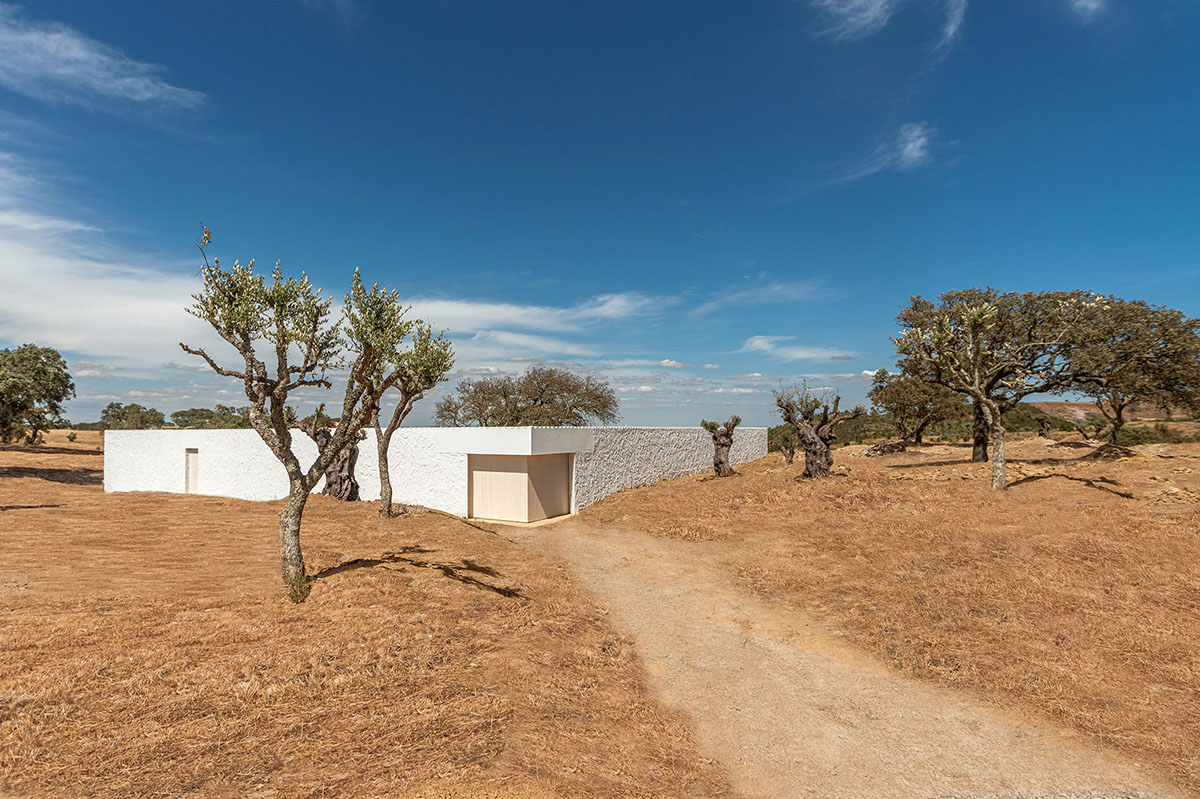
Low-profiled whitewashed stone walls wrap living units of this house like a citadel on arid hills of the Grandola in Portugal.
Named Casa da Volta, the house is designed as an introverted structure but it draws attention with its minimalism and scale that leaves on the landscape.
Designed by PROMONTORIO and João Cravo, the typology of this house is inspired by the tradition of the Portuguese alcáçova - which is a Moorish fortification in Spain and Portugal and the term of qasbah, derived from Arab etymology - which functioned as a defensive citadel, or compound, with its constructions built within and protected by a high-walled perimeter.
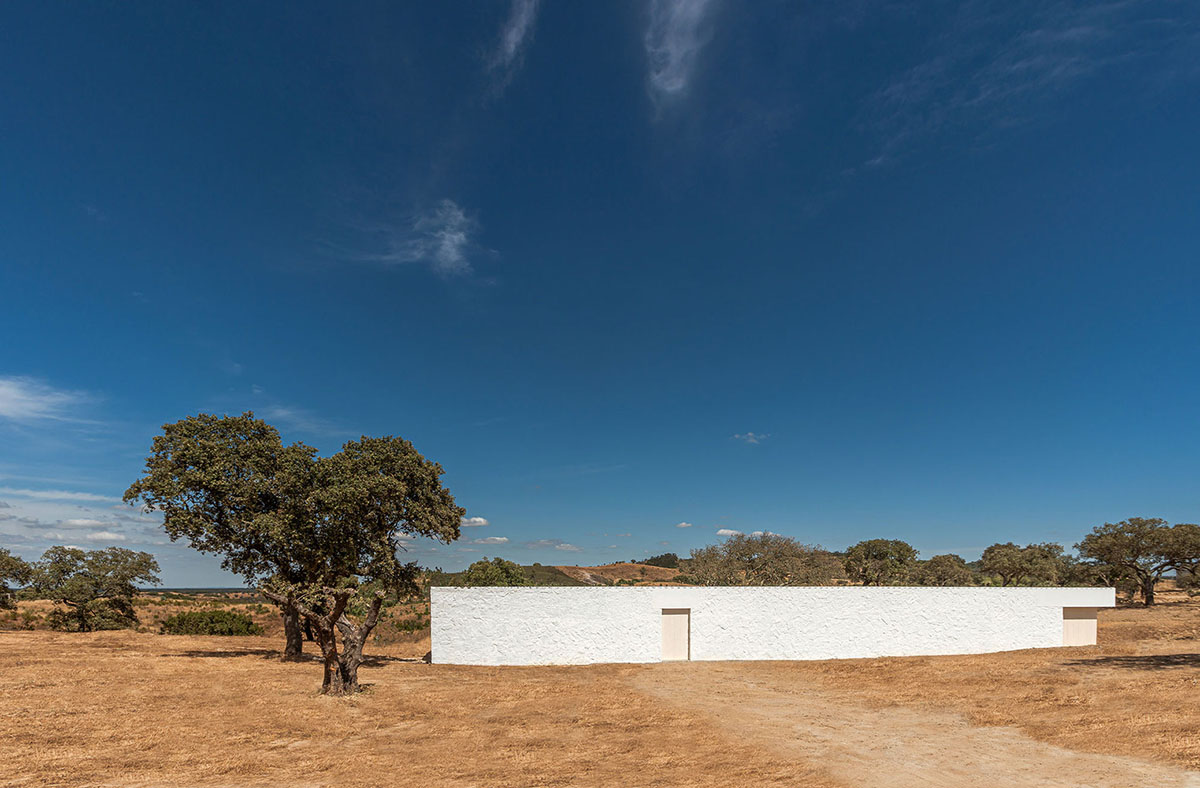
Image © Luis Viegas
Covering a total of 500-square-metre area, the house is located in the Southwest of Alentejo, deep in the Grandola hills.
The gently undulating topography contrasts with the harsh dryness of the landscape and its bare vegetation of cork and holm oaks with sparse bushes creeping from the calcareous soil.
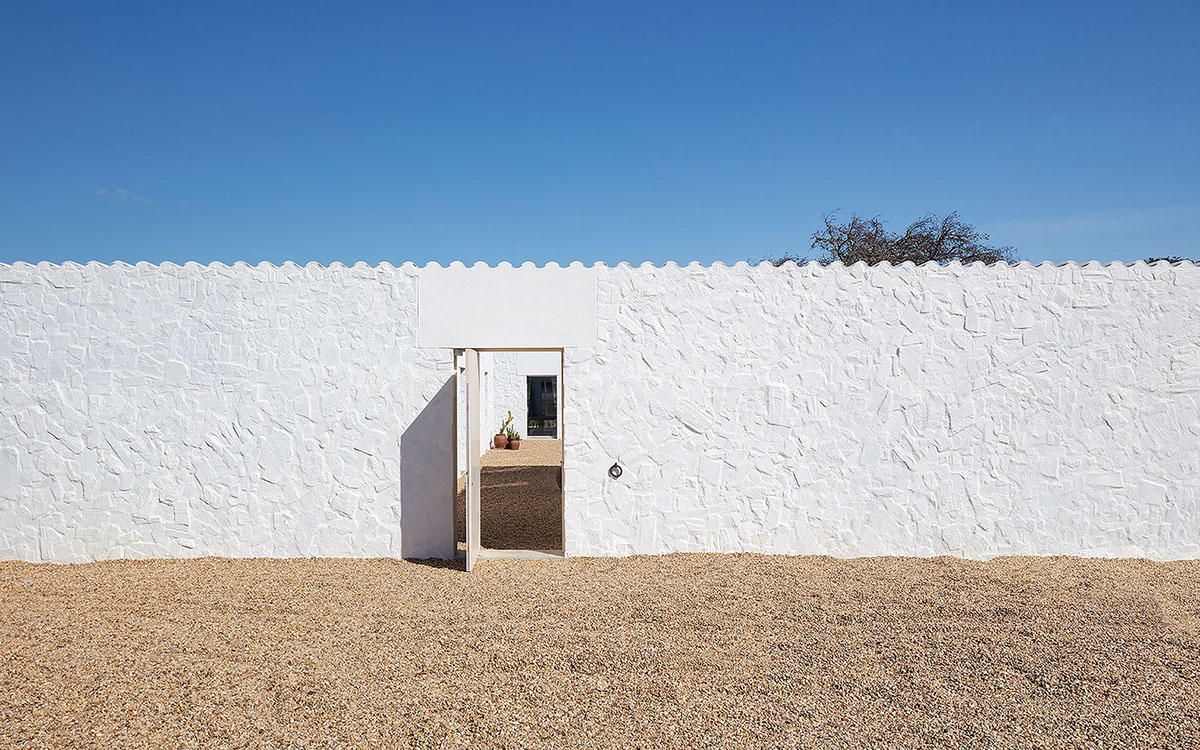
Image © Alexandre Ramos
For this house amidst the landscape, the architects wanted to create a house typology something different what is know before, while carrying the traces of the past. The house swings between being a living place and being a castle.
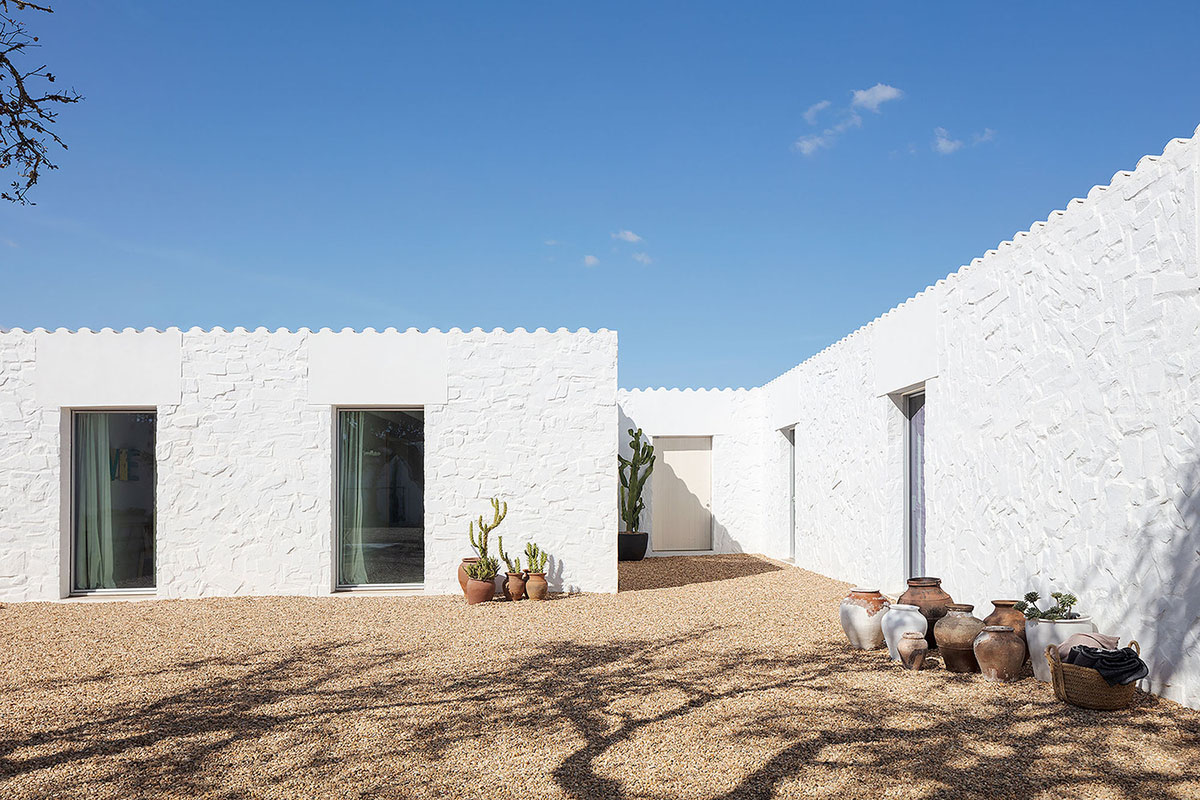
Image © Alexandre Ramos
"Poetically, it summons the Heideggerian notion of “bounded space”, of the human need to define a place of dwelling amidst the endlessness of the landscape," said PROMONTORIO and João Cravo.
"In fact, this typology of a fortified farm is the dominant form of occupation across the Maghreb and the Mediterranean, from Roman antiquity and Arab settlements to Fernand Pouillon’s and Le Corbusier’s excursus in Argel."

Image © Luis Viegas
The house has a very simple layout, it wraps all units and creates a large courtyard at the center, described as a walled court. While moving from one unit to another, you are indeed within the house.
As the studio explained, "the positioning of this court in the landscape was actually constrained by a regulatory distancing from the property limits".
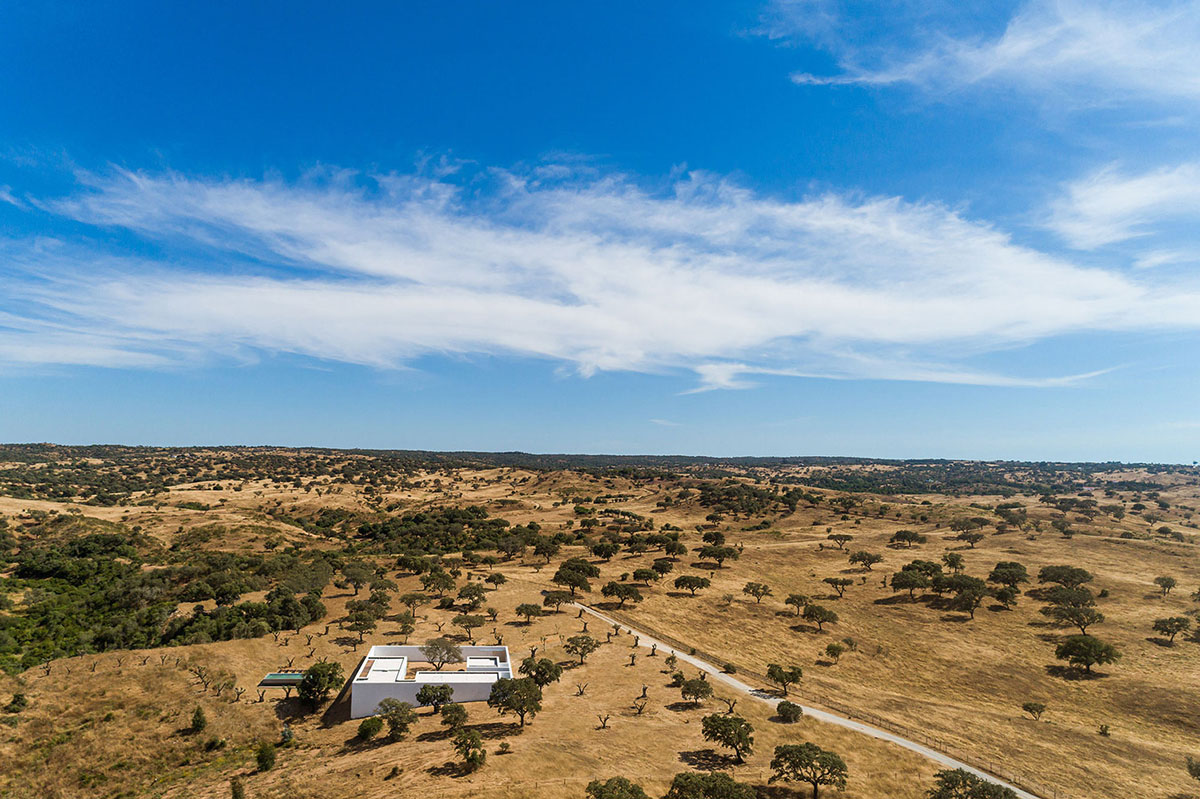
Image © Luis Viegas
The house is sited on a valley line, but it appears half sunk from the Southwest corner, progressively revealing itself towards the Northeast.
The house has a few openings, apart from a corner gateway and the small entrance door, the exterior walls barely reveal themselves with a texture. An exception is made to the East elevation, as it opens up to a large terrace overlooking the vastness of the landscape and a small creek below.
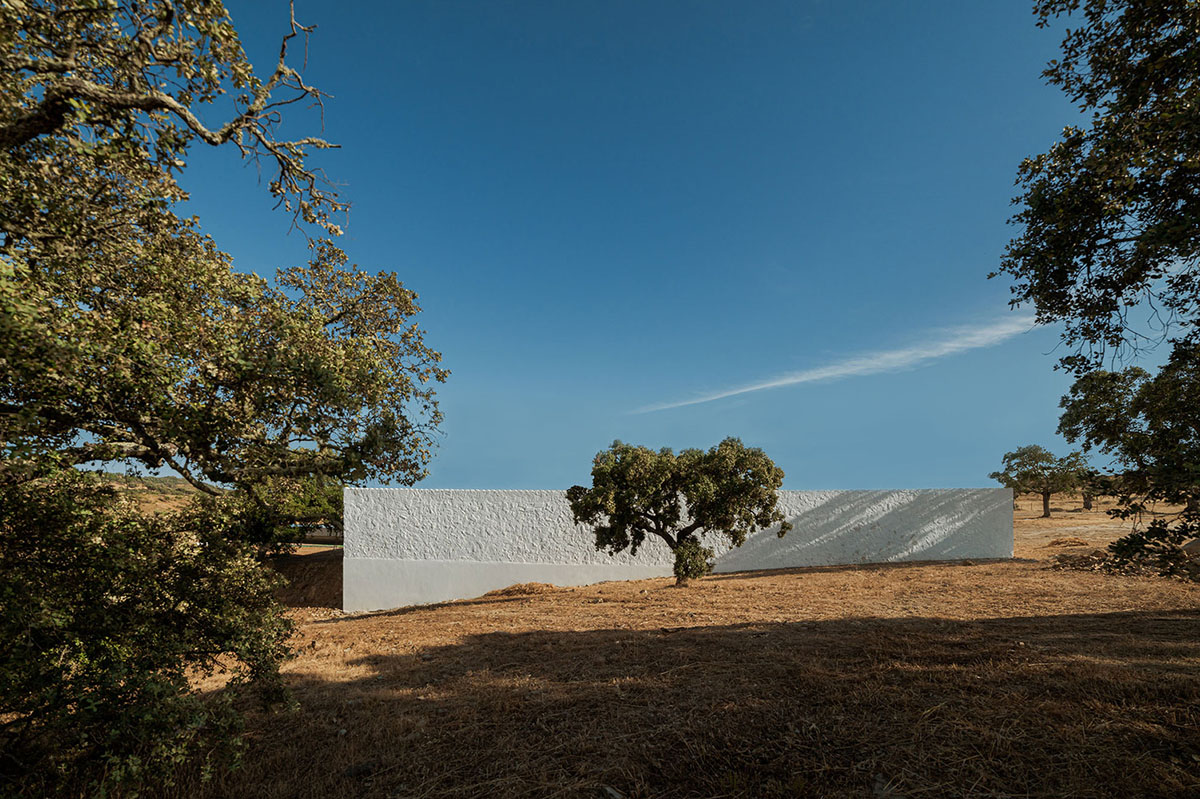
Image © Luis Viegas
At the rear of the house, a large, open swimming pool, raised from the ground, complements the landscape.
Inside the courtyard, three rectangular volumes are placed in the North, the East, and the West corners, comprising respectively the bedroom suites, the living room, and kitchen and the garage-cum-staff bedroom, while the void southwards is formally occupied by an orchard.
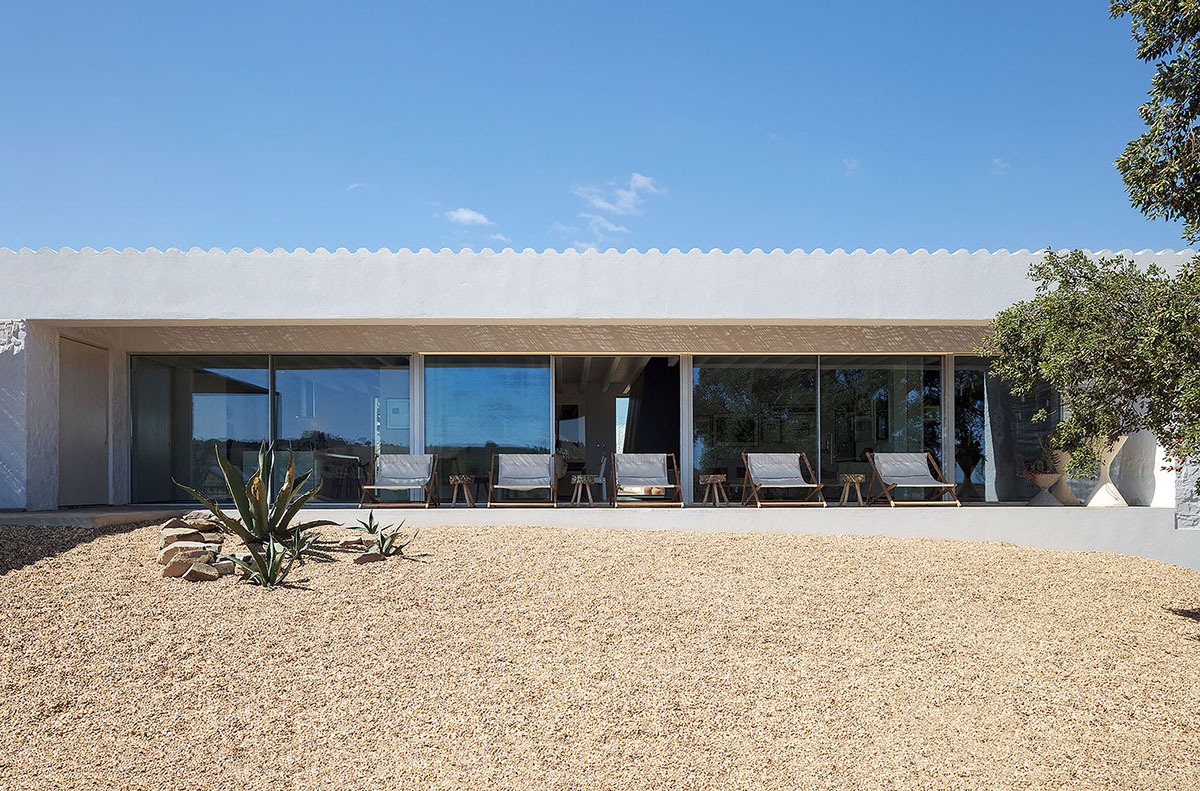
Image © Alexandre Ramos
The common areas function in a classical sequence of unfolding rooms, from the kitchen to the living room and to the library, all of which are separated by symmetrical pocket doors. The dining area is divided from the living room by a large fireplace with a hanging metal chimney. The ceiling is made of structural whitewashed wood beams and boarding with white stuccoed walls and cement floors.
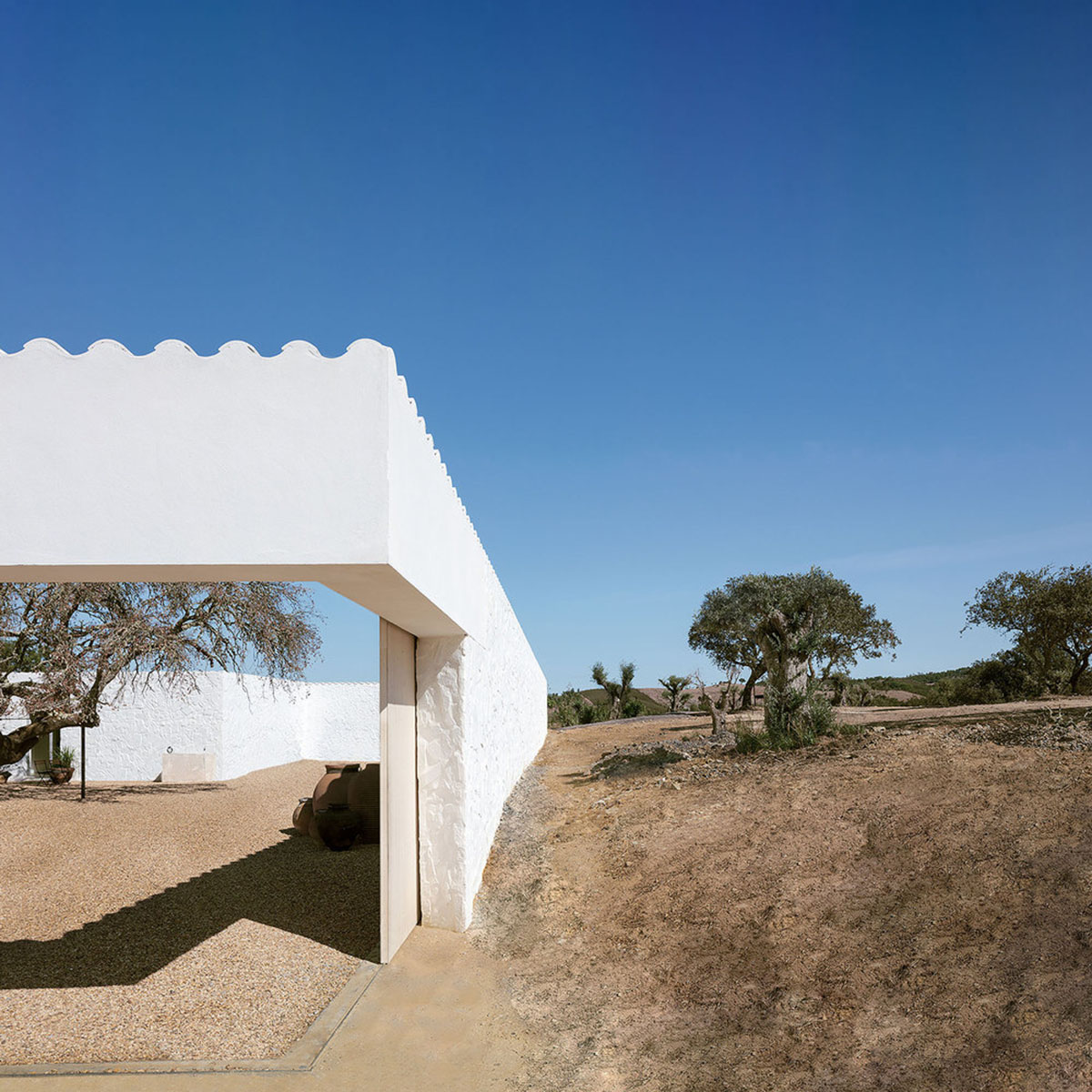
Image © Alexandre Ramos
The house is clad from the outside in whitewashed stone masonry, while the thick walls are capped by an elusive pan tile, suggestive of a pitched roof that in fact does not exist, and an equally calk-painted concrete lintel.
The roughness of these burnt lime surfaces summons a vernacular and quasi-archaic condition which is nonetheless dismissed by its sheer scale and abstraction.
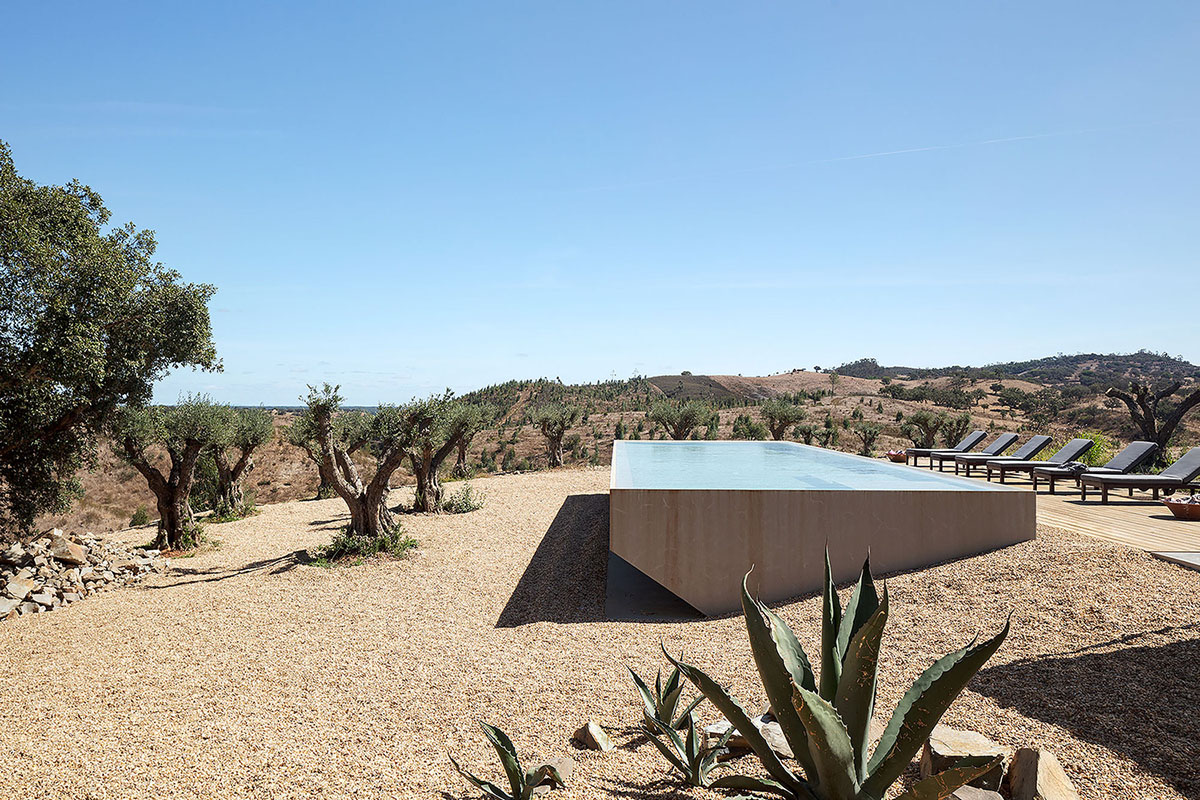
Image © Alexandre Ramos
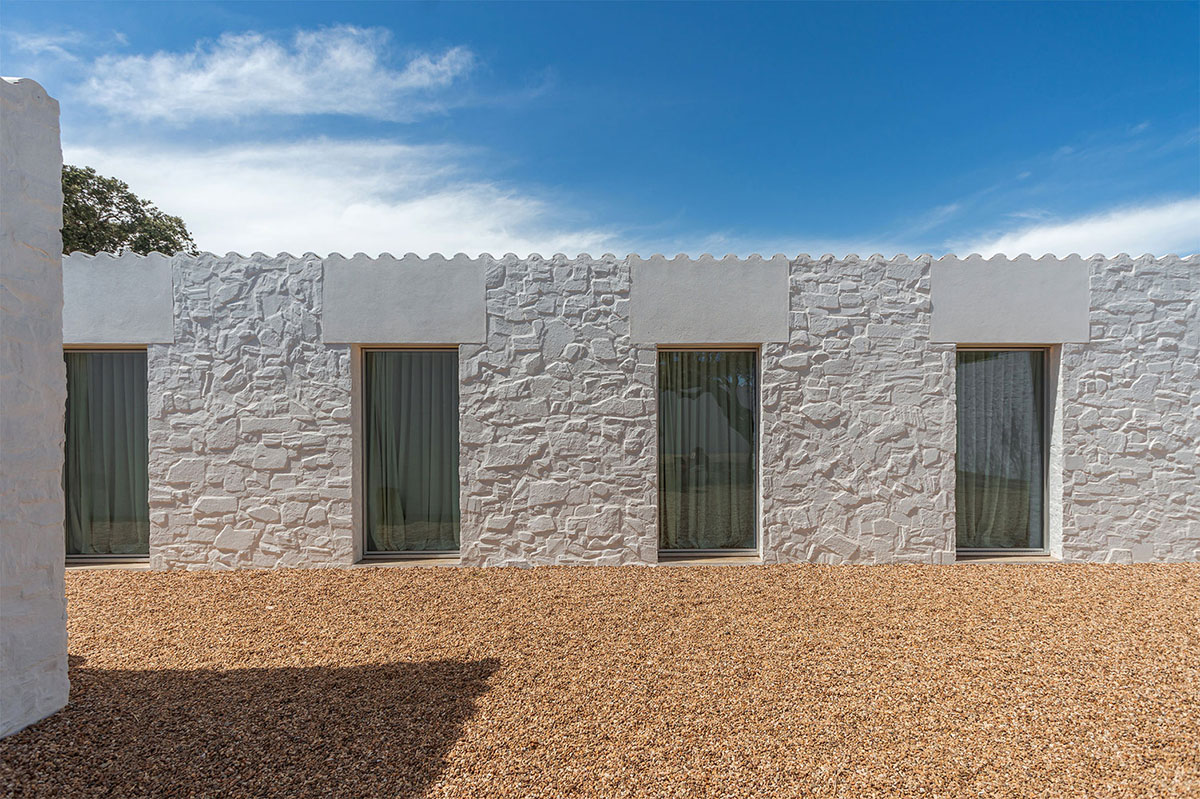
Image © Luis Viegas

Image © Alexandre Ramos
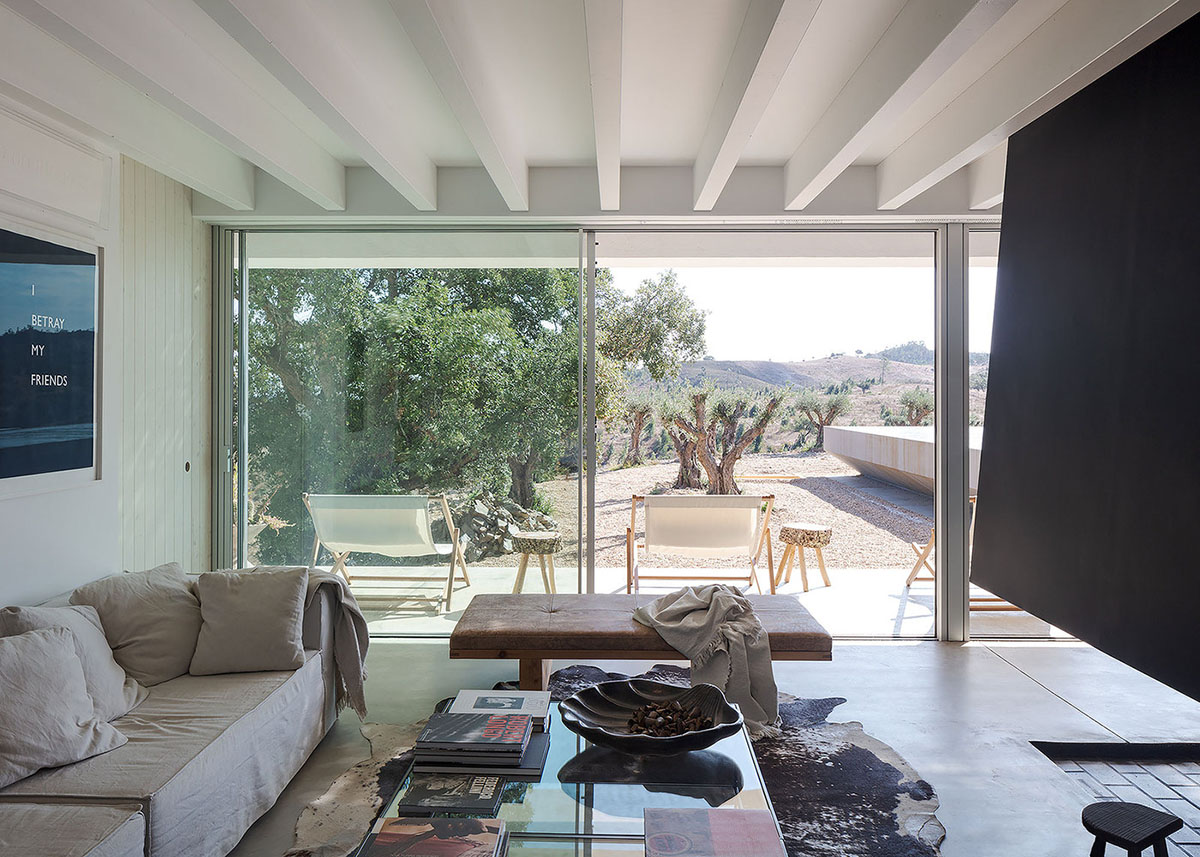
Image © Alexandre Ramos
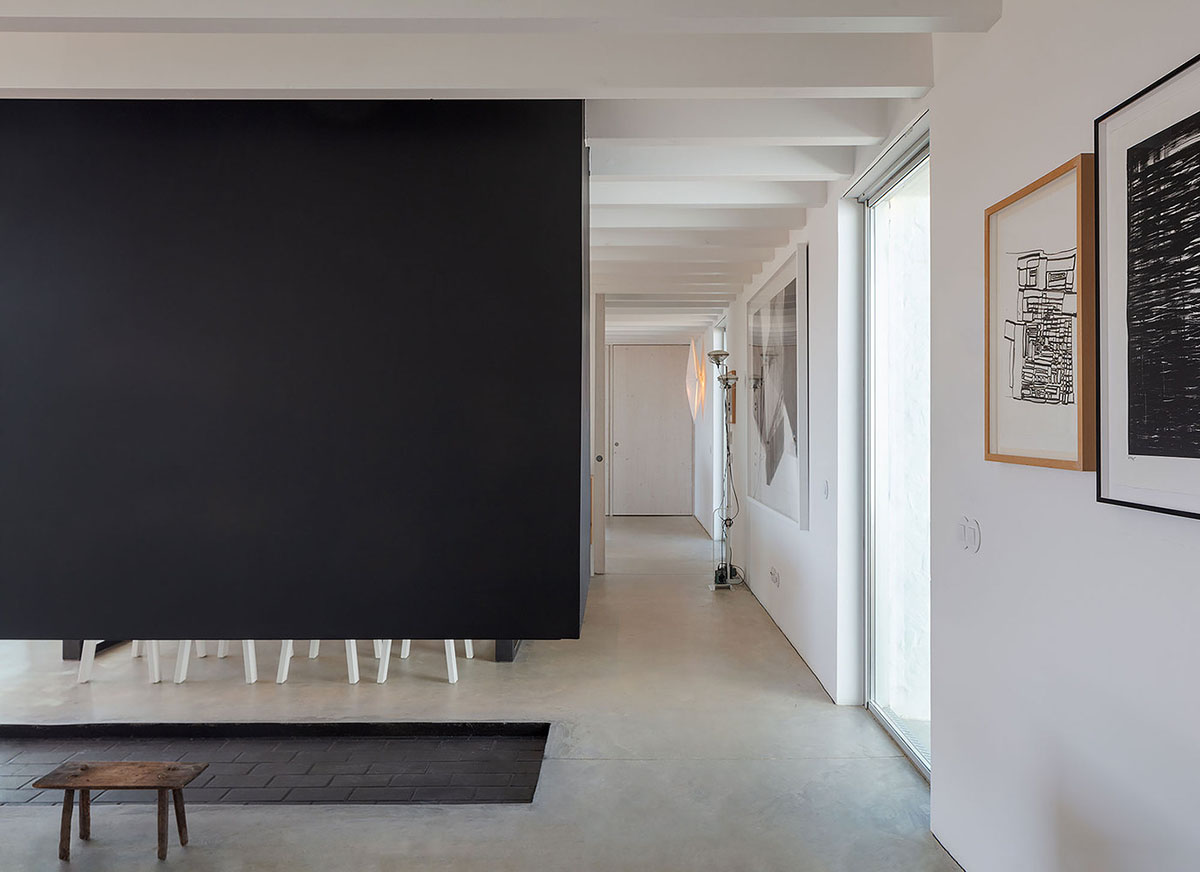
Image © Alexandre Ramos
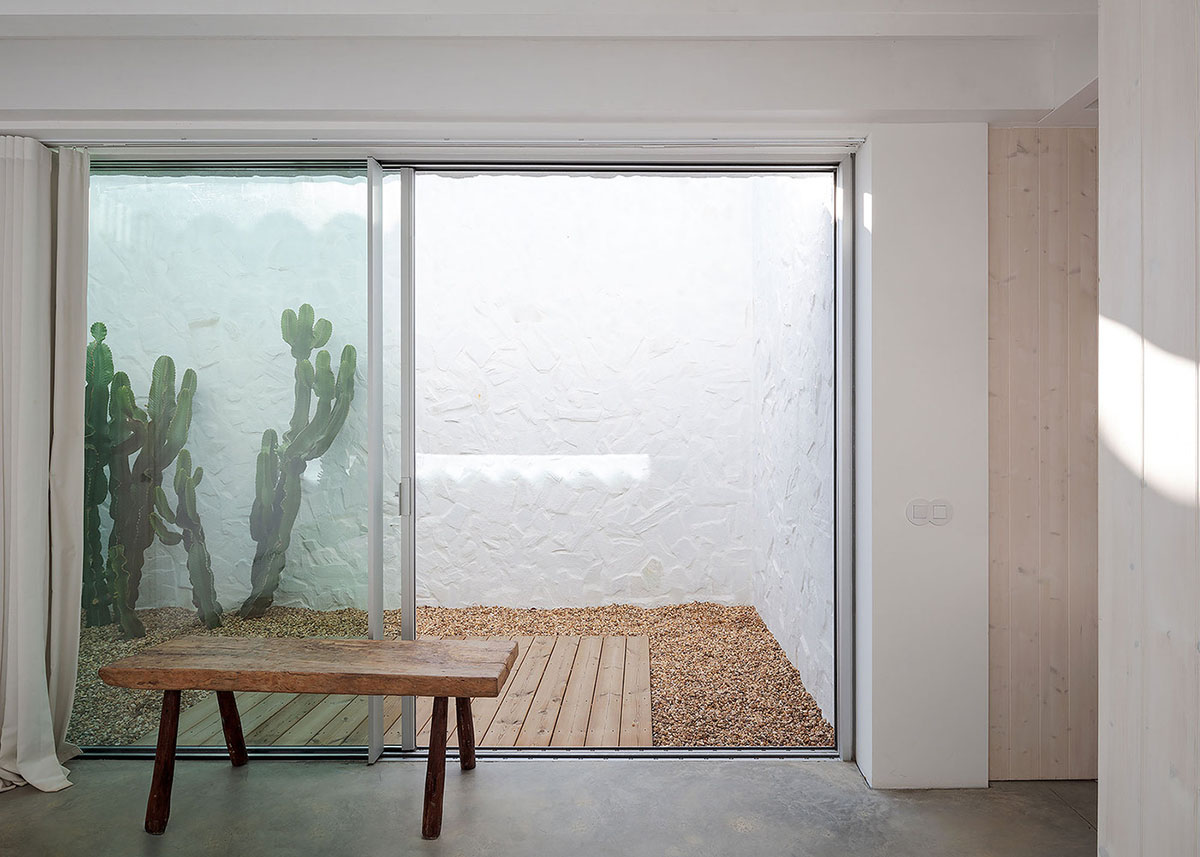
Image © Alexandre Ramos
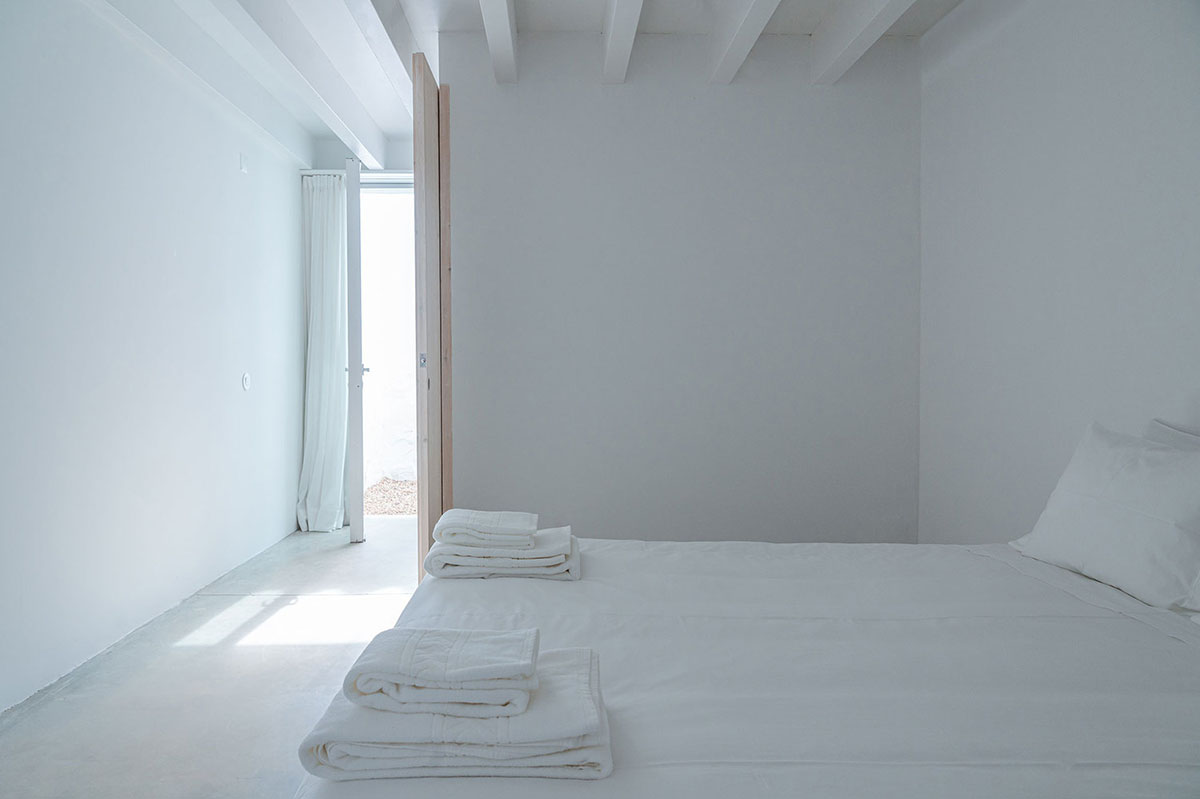
Image © Luis Viegas

Site plan
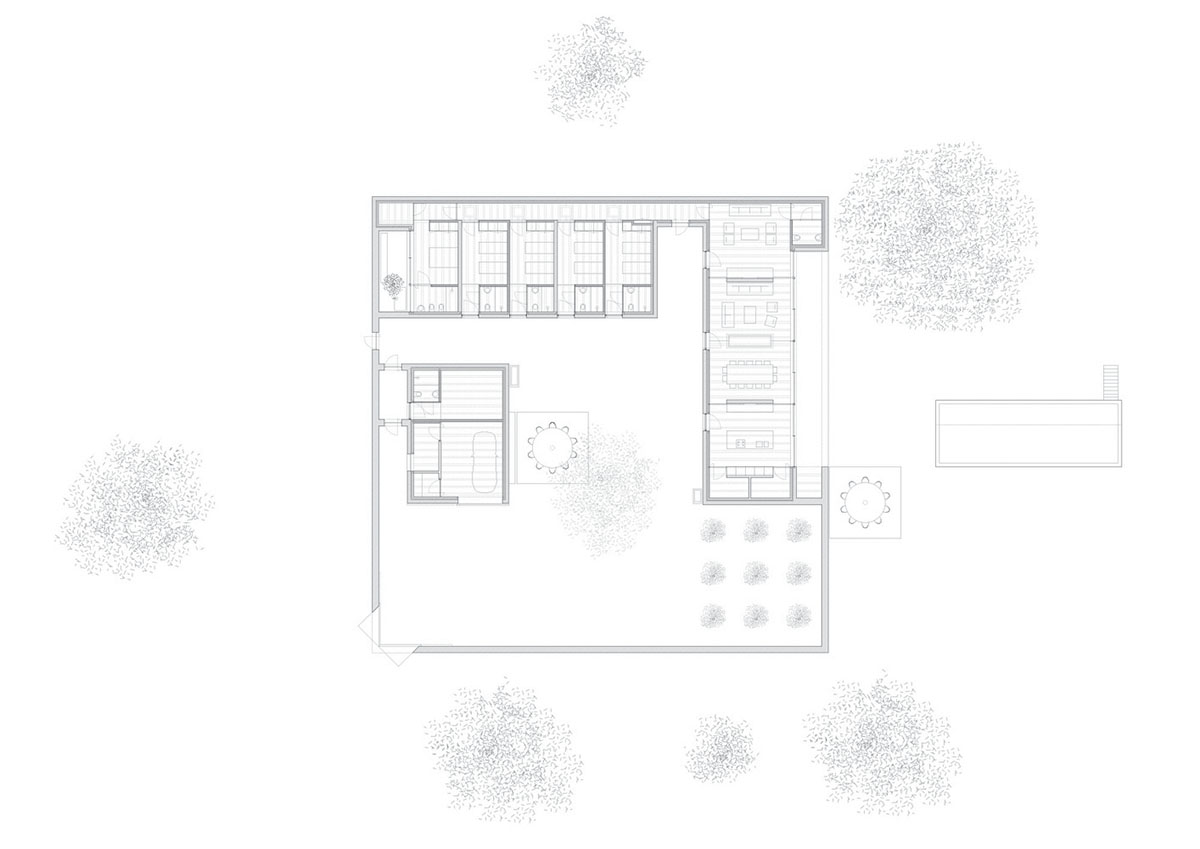
Floor plan
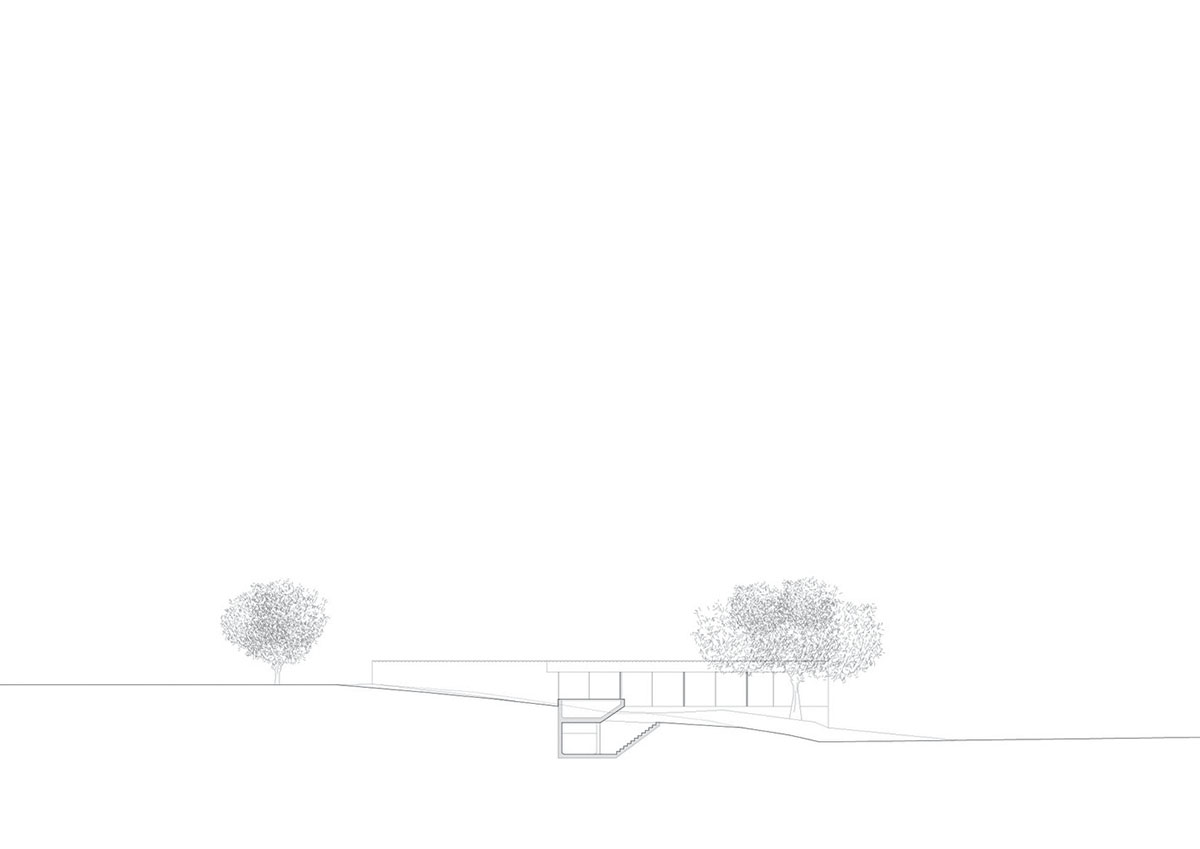
Section
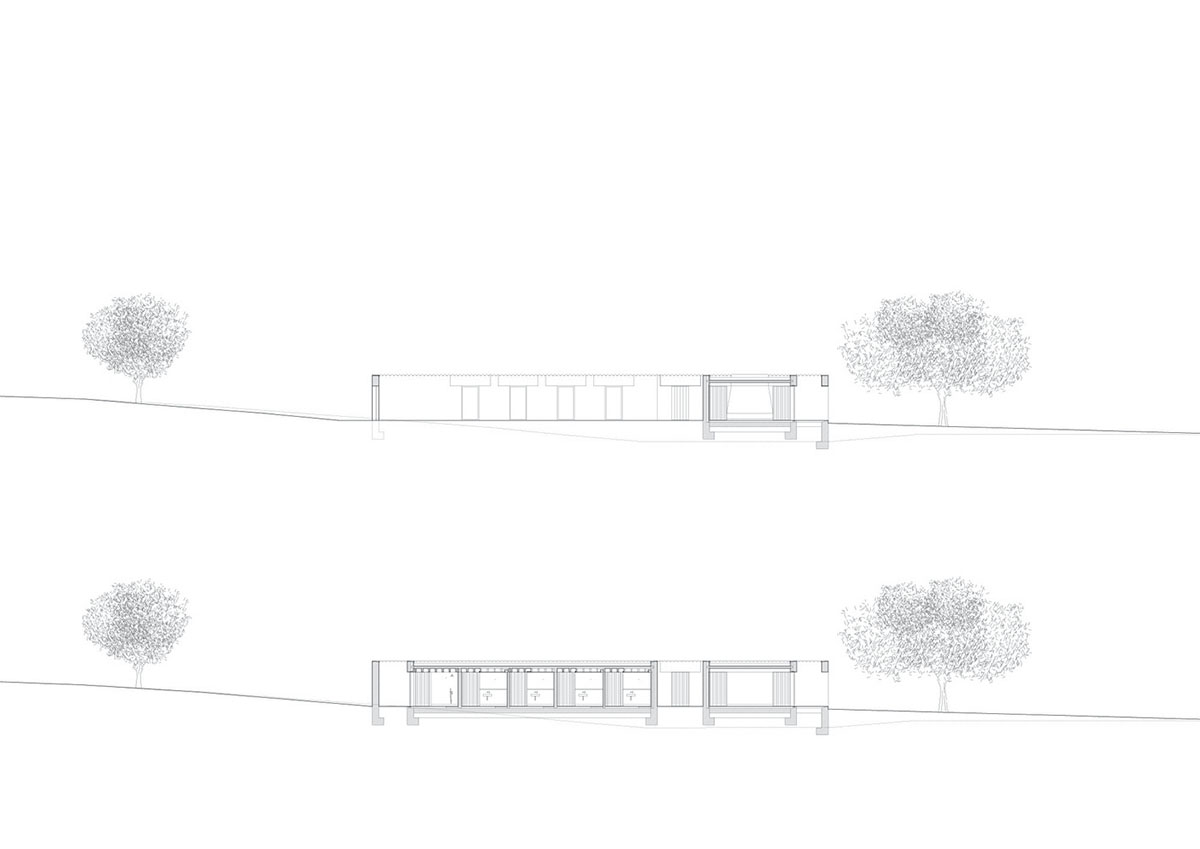
Sections
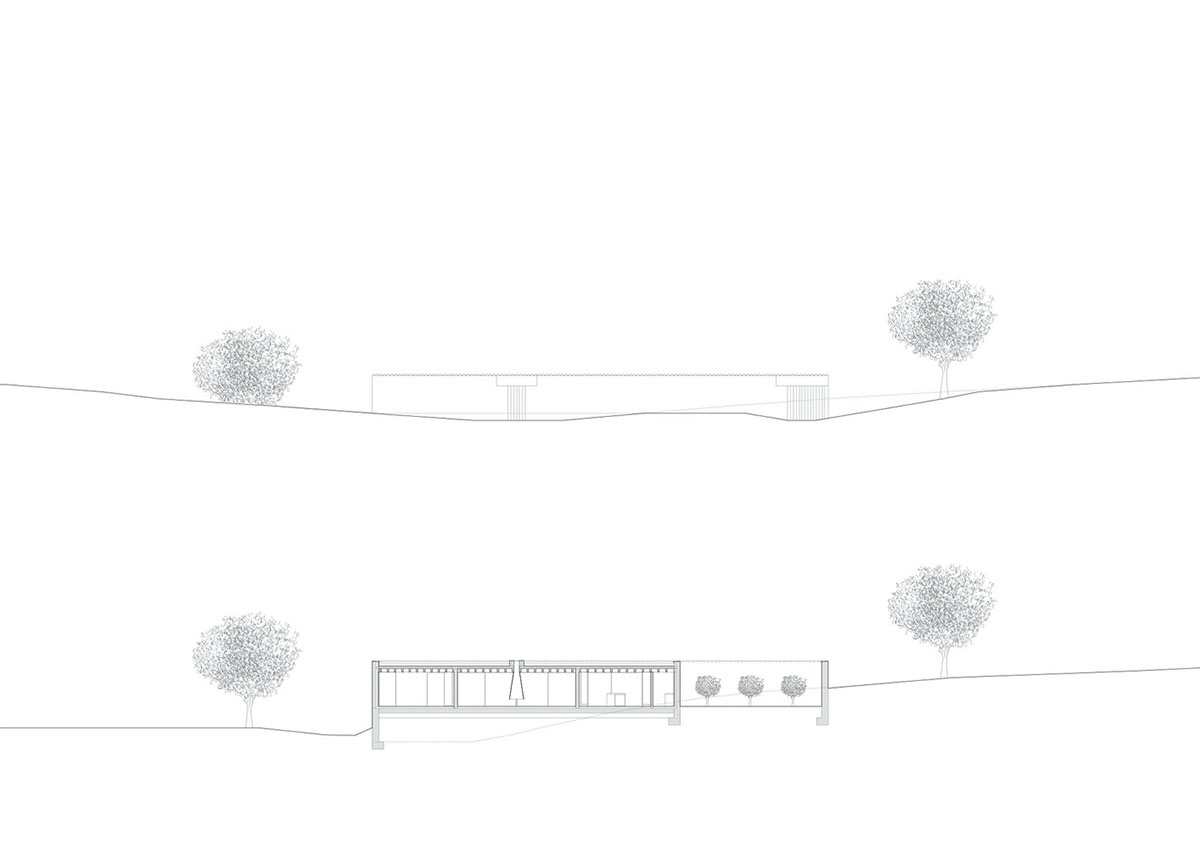
Sections
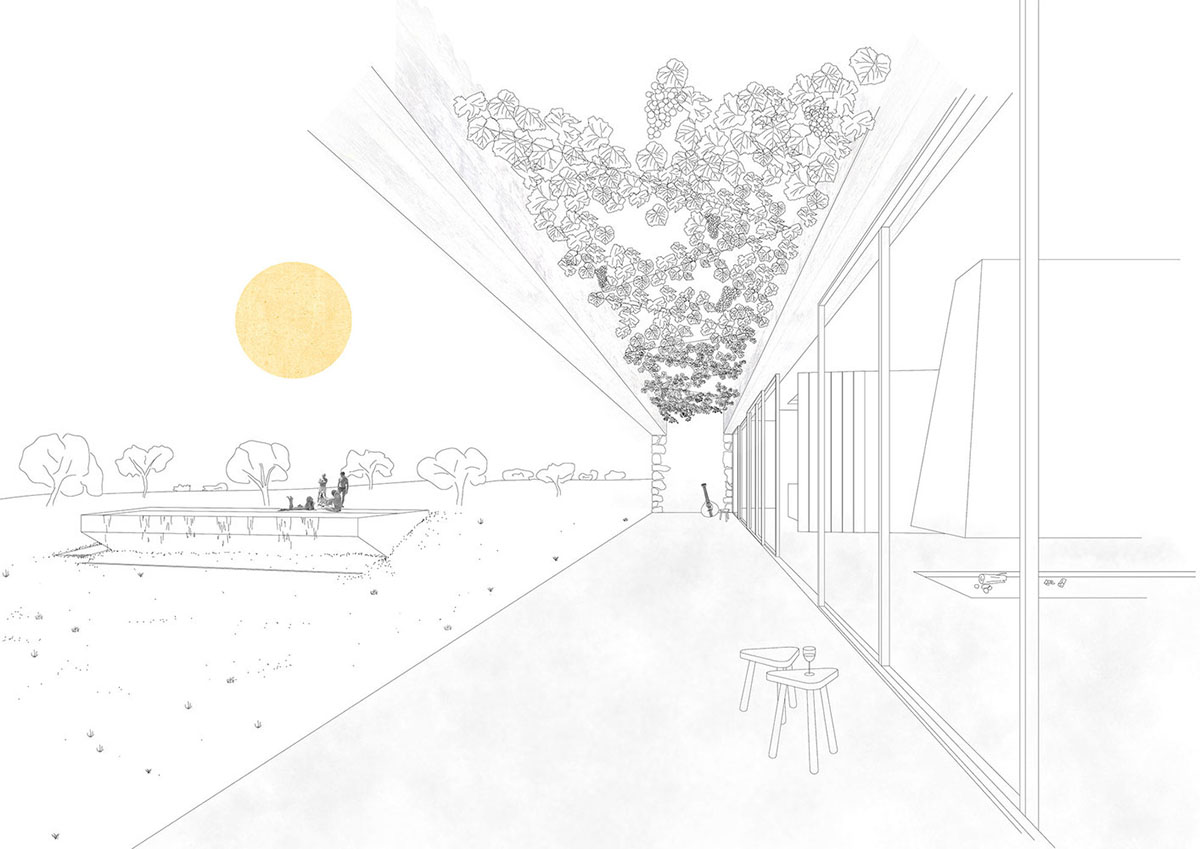
Perspective

Perspective

Model
PROMONTORIO is led by five partners, Paulo Martins Barata, Joao Luis Ferreira, Paulo Perloiro, Pedro Appleton and Joao Perloiro. The firm previously design GS1 Portugal Headquarters featuring a zigzagged facade with bas-relief in Lisbon.
PROMONTORIO has offices in Lisbon, Angola, Germany, Kuwait, Mozambique, Qatar, USA.
Project facts
Project name: Casa da Volta
Location: Grândola, Alentejo, Portugal
Client: Pedro do Carmo Costa
Scope of Services: Architecture and landscape architecture
Architecture: PROMONTORIO in co-authorship w/ Joao Cravo
Project Brief: 6-bedroom house
Plot Area: 7,7 hectares
Gross Built Area: 500 sq.m
Construction Cost: EUR 1.350,00/ sq.m (plus VAT)
Project Status: 2016 (design/ submission) – 2021 (built)
Top image © Luis Viegas
All images © Alexandre Ramos, Luis Viegas
All drawings © PROMONTORIO
> via PROMONTORIO
